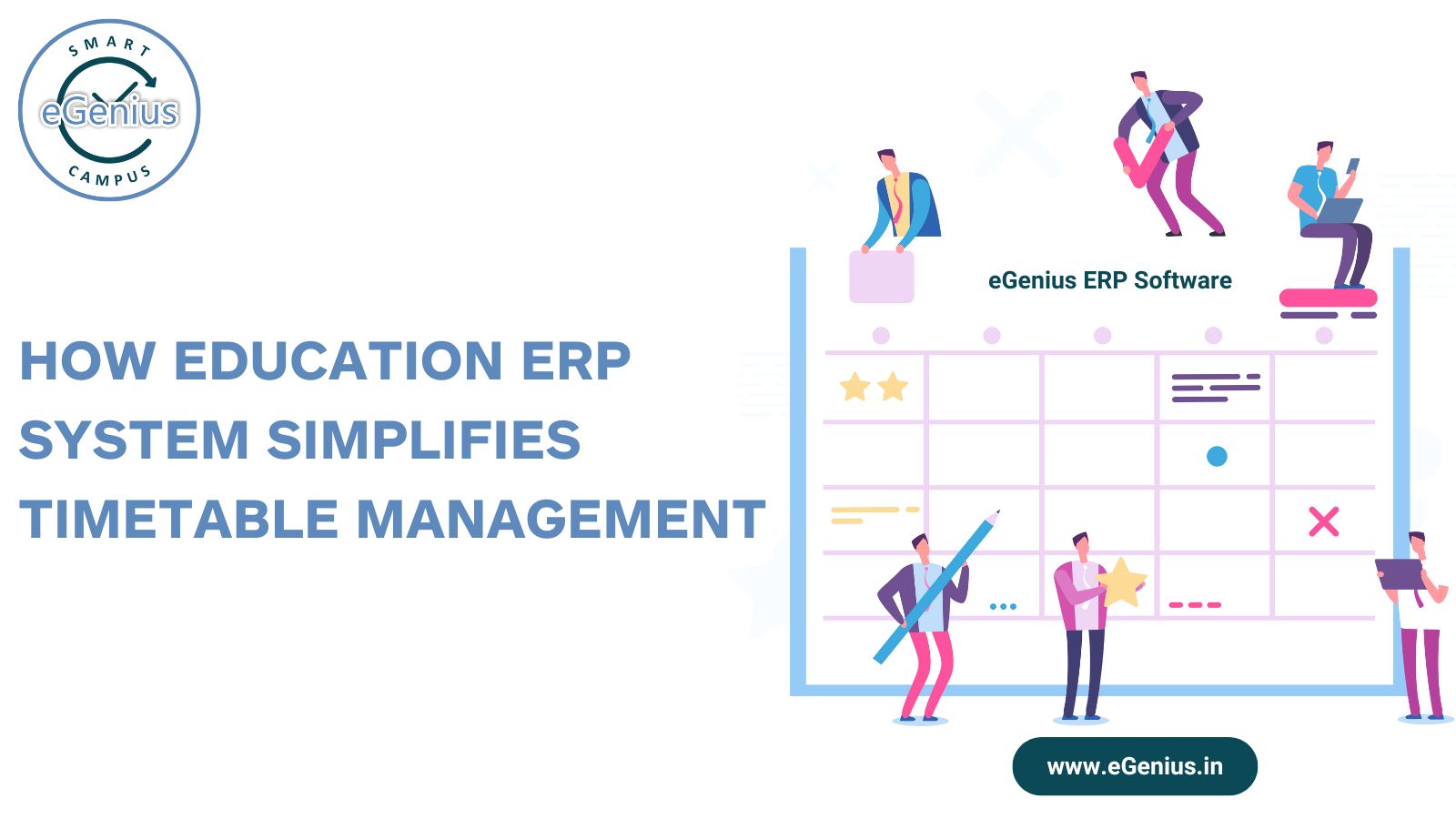Dealing with timetables in schools can be a tough job. But there is a fix! A tool called Education ERP system, teamed up with good timetable managing software, makes this job way easier. This article talks about how the ERP system makes managing timetables a breeze, making it quicker and saves your time.
Table of Contents
- Understanding Education ERP Systems
- The Complexity of Timetable Management
- How Education ERP Systems Simplify Timetable Management
- Automated Scheduling
- Conflict Resolution
- Benefits of Using Timetable Management Software
Understanding Education ERP Systems
Education ERP systems are comprehensive software solutions designed to manage and automate various administrative tasks within educational institutions. From admissions and attendance to fee management and academic records, these systems encompass a wide range of functionalities. Timetable management is a critical component of these systems, ensuring that the academic schedule is organized and conflict-free.
The Complexity of Timetable Management
Setting up a school schedule means making sure classes, rooms, and teachers line up right. It is not easy with lots of things to think about, like when teachers can work, how many kids a room can take, and what subject needs to be taught. Not using the right software means this could take forever and have mistakes.
How Education ERP Systems Simplify Timetable Management
Automated Scheduling
One of the primary ways an Education ERP System simplifies timetable management is through automated scheduling. By utilizing advanced algorithms, the software can generate optimal schedules that take into account all necessary constraints and preferences. This automation reduces the manual effort required and minimizes the likelihood of scheduling conflicts.
Conflict Resolution
Conflict resolution is another significant advantage offered by timetable management software. The system can automatically detect and resolve conflicts, such as overlapping classes or double-booked resources. This feature ensures that the timetable is not only feasible but also efficient, allowing institutions to make the best use of their resources.
Resource Allocation
Effective resource allocation is crucial for maintaining a smooth operational flow within educational institutions. Timetable management software can manage the allocation of rooms, equipment, and other resources. By ensuring that these resources are used optimally, the software helps in avoiding bottlenecks and maximizing productivity.
Flexibility and Customization
Adjustability and personalization are key to meeting the distinct needs of various organizations. Timetable management programs provide straightforward tweaks and personal touches. Be it special occasions, teacher choices, or explicit course needs, the software can adjust to multiple situations, offering a bespoke solution for every organization.
Benefits of Using Timetable Management Software
The benefits of using Timetable Management Software extend beyond simplification. Institutions can expect improved efficiency, reduced errors, and better resource management. Additionally, the software enhances communication among staff members, as updates and changes to the timetable can be communicated instantly. Overall, the adoption of an Education ERP system with robust timetable management capabilities leads to a more organized and productive academic environment.
In conclusion, the integration of an Education ERP system with timetable management software offers significant advantages for educational institutions. By automating scheduling, resolving conflicts, and optimizing resource allocation, these systems simplify the complex task of timetable management. The resulting efficiency and organization benefit not only the administrative staff but also the teachers and students, contributing to a smoother and more effective educational experience.
By adopting an Education ERP system, institutions can ensure that their timetable management processes are streamlined, accurate, and adaptable to their unique needs.
Explore the transformative power of ERP system tailored for educational institutions on our eGenius website. Discover how ERP streamlines administrative tasks, enhances resource management, and empowers educators to focus on student success. Join us to unlock the potential of integrated technology in education















